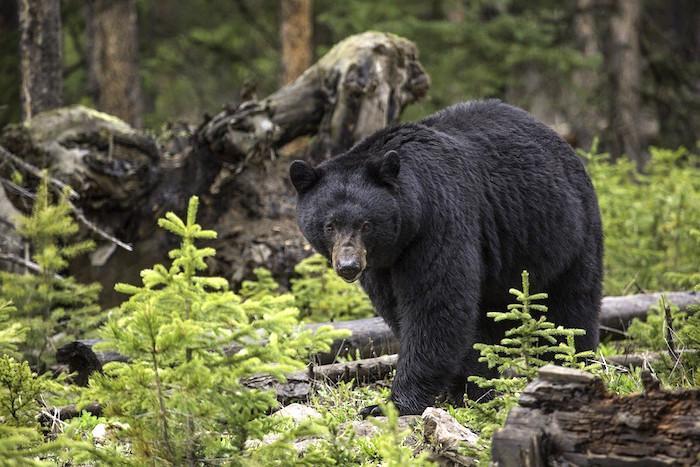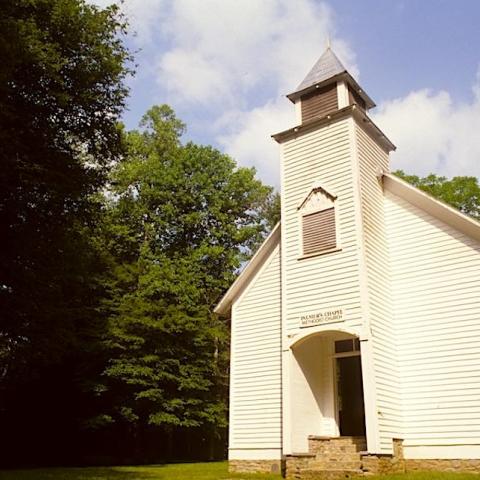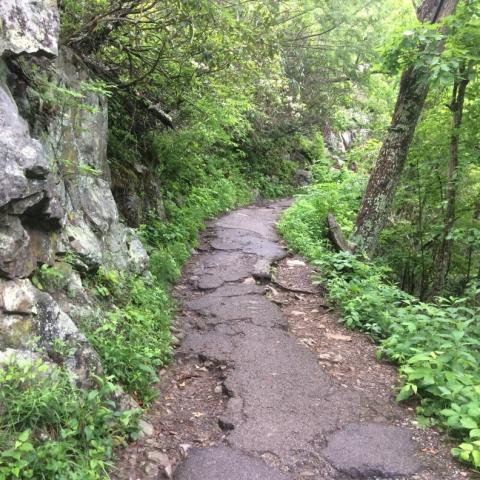
Great Smoky Mountains National Park visitors were cited for feeding peanut butter to a bear/Tennessee Wildlife Resources file
Visitors who were captured on video feeding a black bear peanut butter at Great Smoky Mountains National Park have been cited, park staff said Monday.
“Managing wild bears in a park that receives more than 12 million visitors is an extreme challenge and we must have the public’s help,” said Great Smoky wildlife biologist Bill Stiver. “It is critical that bears never be fed or approached - for their protection and for human safety.”
Prior to the incident, the 100-pound male bear had been feeding on walnuts for several weeks along the Cades Cove Loop Road. The bear started to exhibit food-conditioned behavior, leading wildlife biologists to suspect the bear had been fed.
The visitors were cited June 3. They could face a fine of $5,000 and a prison term of six months. Additional details regarding the number of visitors cited was not immediately available.
Biologists captured the bear, tranquilized it, and marked it with an ear tag before releasing it on site in the same general area. Through aversive conditioning techniques rangers try to discourage bears from frequenting parking areas, campgrounds, and picnic areas where they may be tempted to approach vehicles in search of food. These techniques include scaring bears from the roadside using loud sounds or shooting them with paint balls.
Park officials remind visitors about precautions they should take while observing bears to keep themselves and bears safe. Until the summer berries ripen, natural foods are scarce. Visitors should observe bears from a distance of at least 50 yards and allow them to forage undisturbed. Bears should never be fed.
While camping or picnicking in the park, visitors must properly store food and secure garbage. Coolers should always be properly stored in the trunk of a vehicle when not in use. All food waste should be properly disposed to discourage bears from approaching people.
Hikers are reminded to take necessary precautions while in bear country including hiking in groups of three or more, carrying bear spray, complying with all backcountry closures, properly following food storage regulations, and remaining at a safe viewing distance from bears at all times. Feeding, touching, disturbing, or willfully approaching wildlife within 50 yards (150 feet), or any distance that disturbs or displaces wildlife, is illegal in the park.
If approached by a bear, park officials recommend slowly backing away to put distance between yourself and the animal, creating space for it to pass. If the bear continues to approach, you should not run. Hikers should make themselves look large, stand their ground as a group, and throw rocks or sticks at the bear. If attacked by a black bear, rangers strongly recommend fighting back with any object available and remember that the bear may view you as prey. Though rare, attacks on humans do occur, causing injuries or death.
For more information about how to be BearWise, please visit www.bearwise.org. Local residents are reminded to keep residential garbage secured and to remove any other attractants such as bird feeders and pet foods from their yards. To report a bear incident outside of the park, please call Tennessee Wildlife Resources Agency or North Carolina Wildlife Resources Commission.




 Support Essential Coverage of Essential Places
Support Essential Coverage of Essential Places







Comments
I think 6 months in jail is a good deterrent to feeding bears. I think the fine is too low. $10,000 or better. Money talks.
Some folks don't a lick of sense...bears are not pets..
I have lived here all of my 54 yrs. Three quarters of my people were here when the last quarter of my family came from Scots/Ireland. This was in 1539. My great(x8)granddaddy was the first white man to settle in the Tellico Mountains and set up a trading post with the local Native American Tribes. He married a Cherokee woman, they had kids, and so on and so on and Me!
The Foothills of these Great Smokey Mountains is where I still live and in the house I was raised in. So. On behalf of my elders, my parents, myself, my children, and my grandbabies......
If you cannot visit these mountains and be respectful of all that is here and NOT BE STUPID.....then STAY HOME. Stupid is not welcome here. We have enough without bussing it in.
Please respect the bears!! They are living in " their" home. We are so fortunate to enjoy seeing them. Do not feed!
Well said TNmountainGirl.